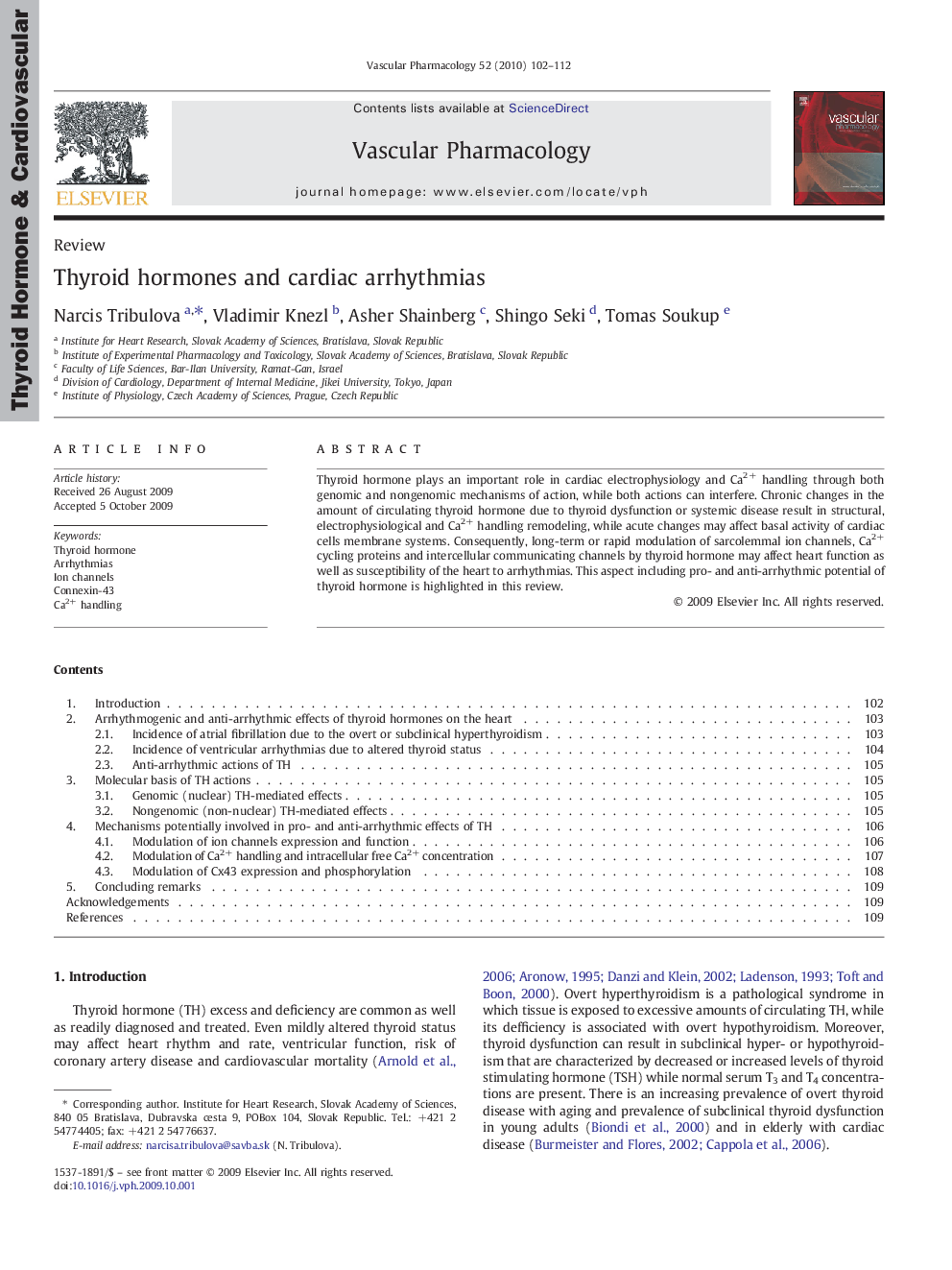| Article ID | Journal | Published Year | Pages | File Type |
|---|---|---|---|---|
| 2574417 | Vascular Pharmacology | 2010 | 11 Pages |
Thyroid hormone plays an important role in cardiac electrophysiology and Ca2+ handling through both genomic and nongenomic mechanisms of action, while both actions can interfere. Chronic changes in the amount of circulating thyroid hormone due to thyroid dysfunction or systemic disease result in structural, electrophysiological and Ca2+ handling remodeling, while acute changes may affect basal activity of cardiac cells membrane systems. Consequently, long-term or rapid modulation of sarcolemmal ion channels, Ca2+ cycling proteins and intercellular communicating channels by thyroid hormone may affect heart function as well as susceptibility of the heart to arrhythmias. This aspect including pro- and anti-arrhythmic potential of thyroid hormone is highlighted in this review.
Graphical abstractThyroid hormone plays an important role in cardiac electrophysiology and Ca2+ handling through both genomic and nongenomic mechanisms of action, while both actions can interfere. Chronic changes in the amount of circulating thyroid hormone due to thyroid dysfunction or systemic disease result in structural, electrophysiological and Ca2+ handling remodeling, while acute changes may affect basal activity of cardiac cells membrane systems. Consequently, long-term or rapid modulation of sarcolemmal ion channels, Ca2+ cycling proteins and intercellular communicating channels by thyroid hormone may affect heart function as well as susceptibility of the heart to arrhythmias. This aspect including pro- and anti-arrhythmic potential of thyroid hormone is highlighted in this review.Treatment of the young and old rats with T4 resulted in suppression of hypokalemia-induced ventricular premature beats.Figure optionsDownload full-size imageDownload as PowerPoint slide
